
|
Session and Membership Monitor
Monitoring Characteristics of Multicast Sessions and Participant Hosts
|

|
This section presents elemental statistics about the membership
patterns across all of the multicast infrastructure that is visible to Mantra, through the
routers that it collects data from. The statistics presented below are compiled with the
help of the Mroute and MSDP state tables from various routers.
List of Available Graphs:
More Information:
|
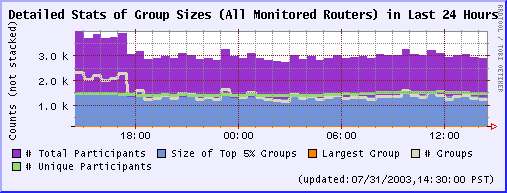 Last 24 Hours
Last 24 Hours
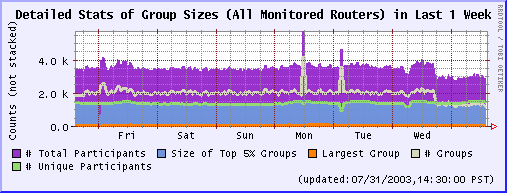 Last 1 Week
Last 1 Week
 Last 1 Month
Last 1 Month
|
Descriptions of Plots
#Total Participants
Total number of participants across all groups; i.e. total number of
(S,G) pairs -- source, group pairs.
Note: If a host is participating in N number of sessions it
will be counted N times (unlike in the calculation of "#Unique
Participants").
Size of Top 5% Groups
Total number of participants in the busiest groups -- groups
with most participants.
Largest Group
Number of participants in the busiest group.
#Groups
#Unique Participants
Number of unique participant hosts. Mantra classifies a host as a "participant
host" if it is a member of at least one multicast group.
Note: a participant host can be either an "active sender"
or can be just a "receiver". Please see below
for more information.
|
Active Senders vs. Receivers:
Amongst the list of participants, Mantra identifies active senders based on the rate at which they are
sending data. Any host sending data at a rate greater than 4kbps is termed as active sender. We have
decided the threshold to be 4kbps with an assumption that no host will be sending control data at a rate
greater than this. The problem with the heuristic is that if a host is sending data (not control data) at
a lower rate (ex: participants for white boards) it will be wrongly categorized as "receiver".
On the other hand if a host is sending control data a higher rate (ex: a badly implemented A/V client) it
will be wrongly categorized as an "active source".go top
|


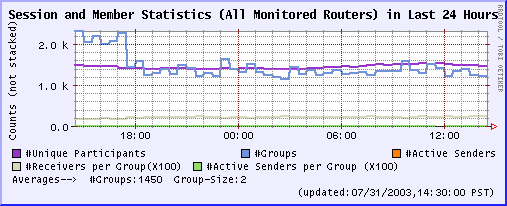 Last 24 Hours
Last 24 Hours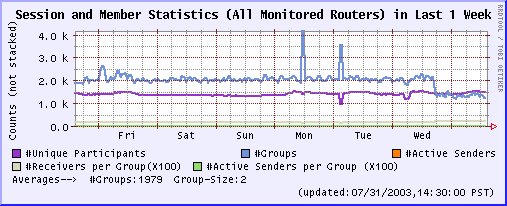 Last 1 Week
Last 1 Week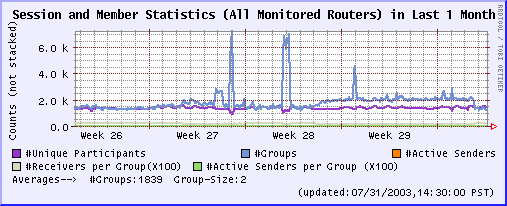 Last 1 Month
Last 1 Month Last 24 Hours
Last 24 Hours Last 1 Week
Last 1 Week